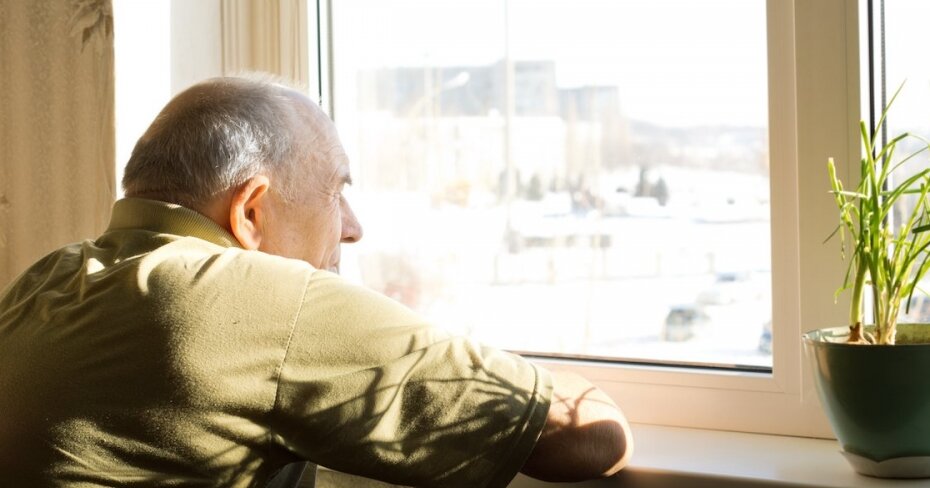Emotionally preparing for retirement is just as important as financially preparing
By: Lisa Coxon on March 13, 2019
When my father retired in 2015, he remembers it feeling pretty nice. After being a truck driver for 39 years, he slowly made the transition from working nights for most of his life to living normal hours like the rest of my family. At first, it felt wonderful to relax. But the further he’s gotten into retirement, the more he’s had to actively work at enjoying it.
“Some days, you’re happy you did retire,” he says now, at 66. “You say to yourself, jeez this is great. You don’t have to go to work and be on time for stuff. But on the other hand, it can get pretty boring.”
My dad thought, like most people, that once he retired, his world would open up. There would be endless new hobbies to take up; there would be an abundance of rest and relaxation; there would be time to socialize and people to socialize with. Up until the time came, he couldn’t wait for retirement. But he found that not long after it arrived, most of his days were being swallowed up by doctor’s appointments for health-related issues.
“Don’t forget,” he tells me, “Retirement is a time to keep your body together, too. Appointments start to take up your time, if you’re unlucky. They can fill in your days pretty quick.”
Every now and again, he flirts with the idea of going back to work. There are, he says, ebbs and flows to this whole retirement thing. Sometimes, it’s great. Other times, it can feel like you’ve lost some sense of purpose.
“Don’t retire,” he tells me with a sarcastic laugh. “It sucks.”
Regretting retirement
Retirement is supposed to be the dream. Not having to work full-time anymore while still collecting some form of income? Being in charge of your own schedule? Having saved enough money for major home renovations, world travel, or something equally exciting? Sounds like paradise.
If retiring is so great, though, then why do one in four retired Canadians regret doing it? At first blush, it could seem like this disappointment is a result of adopting a lower standard of living in retirement. And while that’s certainly a factor, a CIBC poll from January revealed that more retired Canadians choose to return to work because they miss the intellectual stimulation (59%), rather than the money.
The idea that retirement could be, well, kind of boring probably isn’t all that convincing to someone who’s just worked an eight-hour shift for the fifth day in a row and would give anything for a reprieve. But as it turns out, the act of working is actually rather beneficial to our emotional wellbeing.
How does retiring affect the brain?
“What we know from the research among what makes for satisfaction during the working years is that you need a sense of mastery, you need a sense of autonomy, and you need a sense of purpose in the work that you do,” says Dr. Moira Somers, a wealth psychologist and executive coach based in Winnipeg. “You need to know that you’re making a contribution to something bigger than yourself. And so it is in retirement.”
Sure, you might be able to spend most of your days out on the golf course or lounging on the beach — the quintessential images of retirement that are so often sold to us. But Somers says there’s only so much meaning we can get from hobbies.
Some days, you’re happy you did retire. You say to yourself, jeez this is great ... But on the other hand, it can get pretty boring
No matter how much you’re looking forward to it, retirement is a major life shift. And with it comes all kinds of psychological curveballs. “So many people look forward to retirement because they are dog-tired; they are bone-weary” says Somers, who has been seeing a lot of the phenomenon that the CIBC poll references: people finally reaching retirement and being met with a feeling of, this is it?
“All major life transitions share one thing in common,” she says. “They bring about a fundamental change in identity. You go from being single to married. Married to divorced. A student to a fully fledged adult. Childless to being a parent. Those events change how you see yourself and how other people see you. And retirement brings with it that big shift in identity.”
That new identity needs to be able to see you through many years, too. Because thanks to longer lifespans than the generations that came before us, the retirement period is much longer than it used to be. One expert has even gone so far as to put a number on it.
Retirement lasts longer than it used to
Joseph Coughlin is the director of the Age Lab at the Massachusetts Institute of Technology (MIT). One of his team’s main areas of research and expertise is retirement. Coughlin has spearheaded something called the 8,000 days concept, which says that there are, on average, roughly 22 years — or, 8,000 days — to every major life stage. To come up with this number, the Age Lab simply divided a person’s life into four parts: learning (birth through college/university), growing (20s to mid-40s), maturing (mid-40s to mid-60s), and exploring (beginning in the mid-60s) The last stage — exploring — is generally when retirement begins for most people.
But what’s different than with past generations is that because we’re now living well into our 80s and 90s, retirement can last a good 20 or 30 years. That’s a lot of time to fill. Suddenly, retirement seems less like an end and more like a beginning. You might have a crystal clear picture of what you’ll be up to on day 150 of retirement, but Coughlin argues that you’re less likely to be able to envision what you’ll be doing on day 5,050. The point is, retirement is more complex than it used to be.
All major life transitions share one thing in common: they bring about a fundamental change in identity
The Age Lab breaks retirement up into four phases:
- Honeymoon (the yay-I-no-longer-have-to-go-to-work! phase)
- Big decision (the where-will-I-live and who-will-I-spend-my-time-with? phase)
- Navigating longevity (the hello-physical-and-cognitive-health-issues phase)
- Solo journey (the loss-of-a-spouse-or-other-family-member phase)
That last phase — the solo journey — can be especially difficult, especially for those with shrinking or non-existent social circles. “Loneliness is a killer,” says Somers. “So if your spouse is your only source of socialization — and historically that’s frequently been the case for men more than women — you’re putting a lot of stress on that relationship. If you happen to be the one who’s left alone, you’re in a complete social vacuum.”
That’s why, if you’re coupled, it’s crucial to find other sources of socialization beyond your spouse. That said, not all people will find retirement lonely. In fact, some may find that once they retire they’re still working just as hard, just not at a traditional “job.”
Retiring to the unexpected
My mother’s experience with retirement is a far cry from that of my father. She was the first of the two to retire, in 2012, after 32 years of working as a teacher, and later, a librarian. But she spent the first three years of her retirement helping to care for aging parents and a terminally ill sibling, ferrying them to and from doctor’s appointments, moving them into rest homes, and eventually saying goodbye to all three within the span of about two years.
She and her sister were then tasked with cleaning out and selling their childhood home — a feat that took almost another two years to complete. In a sense, my mother only really started to bask in her retirement last year.
“I was needed up until 2018,” she says.
Her story isn’t unusual. More than men, women put caring for aging parents and children before financial security, according to a recent CIBC study. Some 42% of Canadian women aged 55 to 64 are already taking care of aging parents — and many (65%) are worried that they might run out of money in retirement.
If your spouse is your only source of socialization — and historically that’s frequently been the case for men more than women — you’re putting a lot of stress on that relationship
Plus, retiring to the role of caretaker can make it feel as though your retirement isn’t really yours.
“There’s all kinds of purpose in those caregiving activities but there’s not a whole lot of autonomy in it,” says Somers. “Once again, your schedule is being completely determined by somebody else’s needs, and that can become really stressful.”
Now, at 63, my mother is actively enjoying her retirement. She has a time-intensive hobby that keeps her busy and intellectually stimulated. She’s also frequently called upon to be Babysitter Extraordinaire for two rambunctious little grandsons.
Even though her retirement didn’t quite start off as expected, she has no regrets. “My dad often laughed and said, ‘I bet you wish you didn’t retire now!’ as I struggled to pull his walker out of the trunk of his car. But I’m truly grateful I retired when I did,” she says. “Otherwise I would have missed out on that time with my parents and brother.”
What’s the ‘right’ way to retire?
No matter which way you cut it, retirement is probably not going to be what you expected it would. That’s why, before you retire, Somers suggests asking yourself if you’re retiring from something or to something?
“People who only think about the retiring from are the folks that I worry about,” says Somers. “They may not have a replacement identity or activity.”
As a neuropsychologist, Somers works closely with occupational therapists. Her colleagues in the field often talk about what’s necessary for a good life: “Someone to love, something to do, and somewhere to live,” says Somers. “In retirement, you still have those three things that you need to consider: who are you going to spending your time with, where are you going to be doing that, and what will you be doing for purpose and mastery?”
That’s why a phased retirement — where you gradually reduce your workload or maybe go down to part-time hours — can be useful for some people, as opposed to retiring cold turkey. It helps to look ahead before you get there.
“If you are just panting for retirement, take a look at your life now to see what you can do so that when you get there you are healthy and you are happy and you are connected, and you’ve got other sources of meaning and purpose,” says Somers. Those are qualities of life that have almost nothing to do with affluence, either.
“Wealth can be protective in some ways,” Somers admits. “Money can pay for access to services, relief, entertainment and diversion. But it cannot give you meaning. And it cannot buy you love. Those are things available to all of us no matter what our income.”
As it turns out, those might just be the things we need most in retirement.


